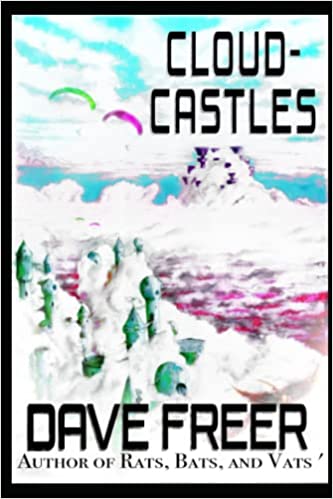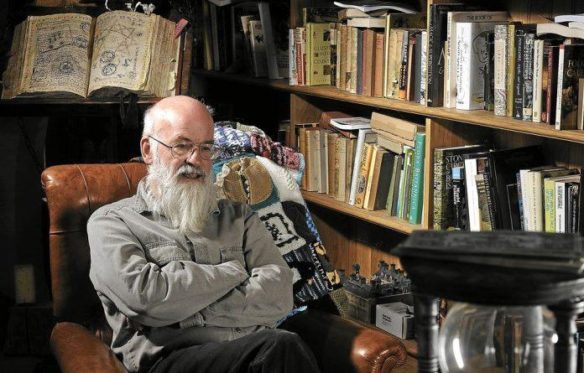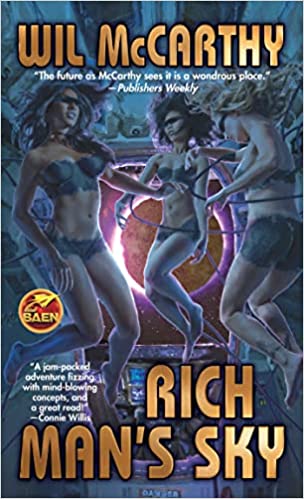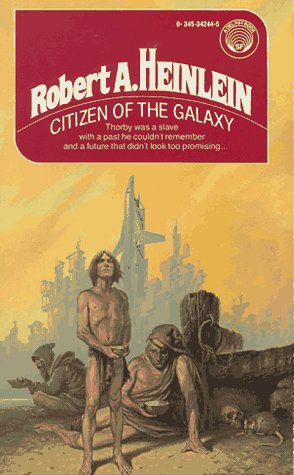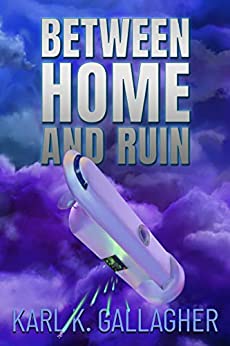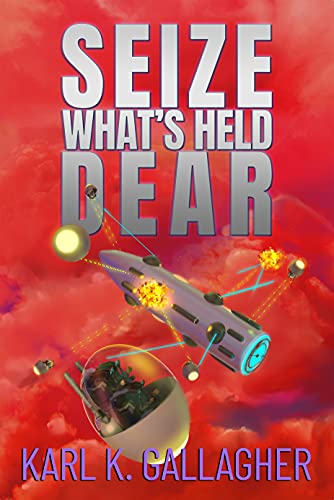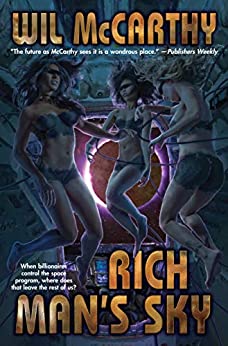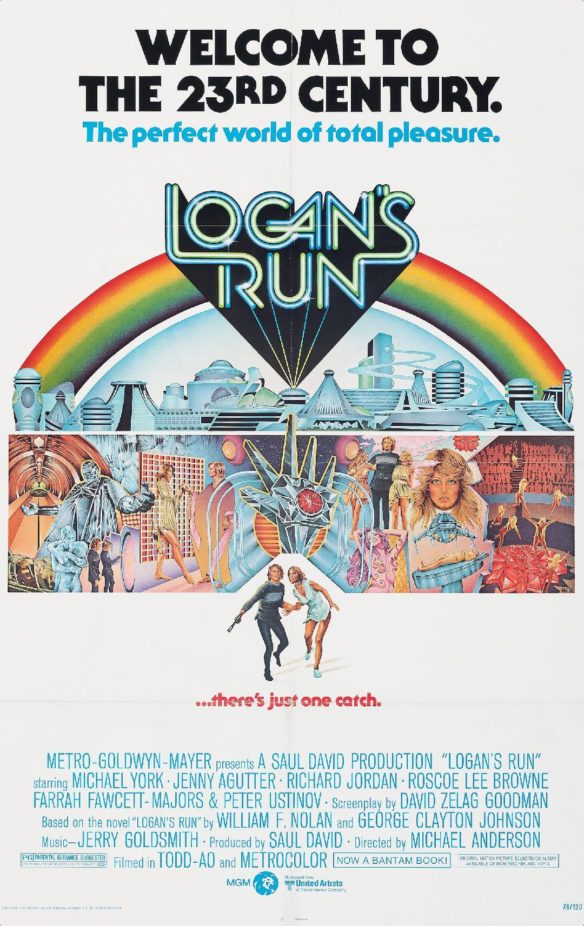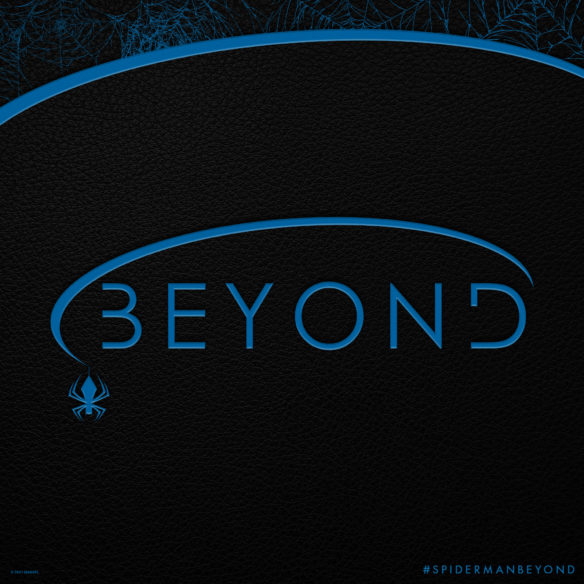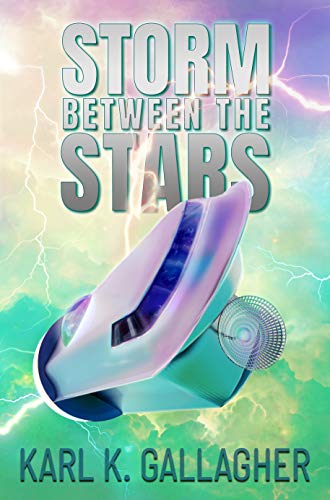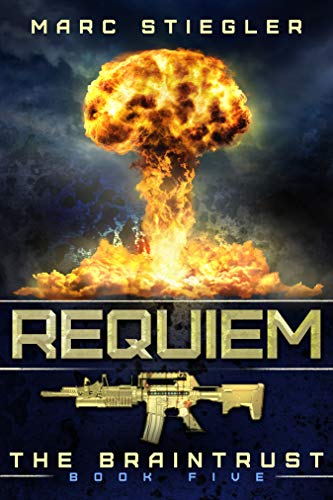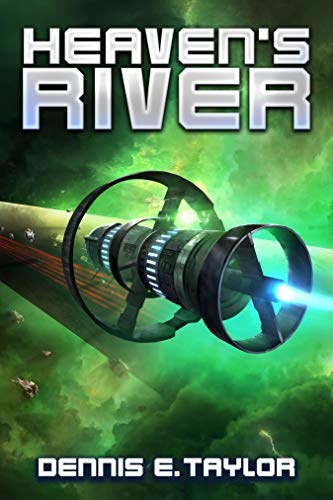(1) SIC SEMPER HEAVENLY TYRANT. [Item by Anne Marble.] Xiran Jay Zhao’s social media offers a window onto their problems with the publisher of their next book, Heavenly Tyrant. They began on January 24 with these messages:
Then today, Xiran Jay Zhao implied that their publisher threatened legal action over those X.com. posts
And later:
In response to some of these posts, horror & SFF writer Zachary Rosenberg suggested at this point, Xiran Jay Zhao should get a lawyer and stop posting to protect their interests.
The hardcover was published by Penguin Teen. (Wikipedia says that they signed with Penguin Teen Canada. I’m not sure if they had a separate U.S. edition.) The paperback is published by Tundra Books, an imprint of Tundra Book Group, which is part of Penguin Random House of Canada Limited. The author lives in Canada.
(2) LUKYANENKO ENDORSES PUTIN. Well, what else did you think the Chengdu Worldcon’s absent guest of honor was going to do? “Писатель Сергей Лукьяненко поддержал решение Владимира Путина участвовать в выборах” at Звездный Бульвар (Star Boulevard) — “Writer Sergei Lukyanenko supported Vladimir Putin’s decision to participate in the elections”.
The collection of signatures in support of Vladimir Putin’s participation in the presidential elections continues in Moscow. The famous Russian science fiction writer Sergei Lukyanenko spoke about his support for the candidacy of the current president in Moscow today in a conversation with journalists from the Moscow News Agency.
“I support Vladimir Putin’s decision (to nominate his candidacy for the presidency). I think that the changes in the country are visible to everyone who has lived at least more than 20 years,” he said….
(3) DON’T SAY WORLDCON. This odd phenomenon in Chinese social media was reported earlier today. Later it was learned the ban only affected one group.
(4) FURRY CON STAFF UPRISING. [Item by Patch P.] There’s turbulent convention organizing, and then there’s having staff resign in protest to force a leadership change: “Grassroots action: Leadership changes and weeding out hate at Garden State Fur The Weekend”. Dogpatch Press has the full story, which begins —
Garden State Fur The Weekend is an upcoming furry convention set for May 3-5, 2024 in New Brunswick, New Jersey. With their launch only months away, something unusual happened. GSFTW posted an official statement about opposing hate and Nazi-fur groups….
It was followed by an announcement of the con chair stepping down and a new one stepping up. It blames medical issues of the ex-chair, Dashing Fox. Dogpatch Press wishes good health to him. The story could end there, but unofficially, the change was forced by staff resignations. You’re seeing the aftermath of revolt behind the scenes, then getting back on track for launch. Yes, they stood up with the power of collective will to change the leadership for the better….
…Let’s not beat around the bush about why staff resigned to uproot the ex-chair: He actively associated with the Furry Raiders. They are a nazifur group who wither everything they touch. Their ties to alt-right hate groups and criminal schemes could fill a book….
(5) RABBIT TESTERS. Michael Grossberg opens a discussion of “Rabbit Test: Samantha Mill’s story, which swept this past year’s sf awards, has been hailed as libertarian (But that depends on your view of its central issue.)” on the Libertarian Futurist Society’s Prometheus Blog. One learns from his post there are people who classify themselves as Libertarians and do not agree with a woman’s freedom to choose to have an abortion. However, the post doesn’t explain whether that is on religious grounds, or why.
…That story is “Rabbit Test,” by Samantha Mills.
According to at least one veteran libertarian sf fan, Mill’s story fits the distinctive focus of the Prometheus Award.
“The well-written story has a strong individual-liberty theme,” said Fred Moulton, a now-retired former LFS leader and Prometheus judge.
But does it?…
…That’s been a hot-button issue even within the libertarian movement. Since libertarianism began to be popular in the 1960s and 1970s, most libertarians have supported a woman’s right to abortion (perhaps influenced partly by Ayn Rand, whose novels and essays helped spark the modern movement).
Yet, some libertarians have always disagreed, even while being consistently “pro-choice” on everything else that doesn’t violate the basic libertarian principles of non-aggression….
(6) GASTRONOMICAL AND OTHER BALONEY. In “Around the World in Eighty Lies”, The Walrus reveals an Atlas Obscura contributor’s mystifying pattern of fabricated facts.
THE STORY WAS CHARMING: a short article about soups, continually replenished for decades, secreted in jars across oceans. The soups, according to one source, were “older than Taylor Swift.” I devoured the article, published in December 2022 on Atlas Obscura, an online publication billed as “best-in-class journalism about hidden places, incredible history, scientific marvels, and gastronomical wonders,” and texted it to a few soup-obsessed friends. Then I forgot about it for months until the weather turned chilly and I pulled up the link again, only to notice the article had changed. An italicized editor’s note had been added to the top, which began: “This article has been retracted as it does not meet Atlas Obscura’s editorial standards.” The note went on to state that multiple details and interviews had been fabricated.
Intrigued, I did a Google search for the author, Blair Mastbaum. His social media profiles and Wikipedia page suggested an American writer in his mid-forties, very active on Instagram, where he posted captionless photos of his travels in Europe. Mastbaum had written ten other articles for Atlas Obscura, eight of which, it turned out, had similar retractions. Topics ranged widely: acoustic archeology, Hawaiian cultural appropriation, an obscure dialect of sign language. Mastbaum’s first retracted story had been published in January 2022; the last one more than a year later….
(7) ONE THUMB UP. [Item by Steven French.] For folks in Chicago, a “Science on Screen” series that includes Godzilla, Don’t Look Up, Contagio and War Games at Siskel Film Center from February 9-12.
It’s the end of the world as we know it…and, if we’re being honest, we could use some help in feeling fine. From pandemics to nuclear war, from planet-pulverizing meteors to a city-smashing monster, these films explore all the ways we’re risking destruction. Watch the films with experts from the Bulletin of the Atomic Scientists, keepers of the Doomsday Clock, to discuss the end times—and how we can avoid them. Presented in partnership with the University of Chicago Existential Risk Laboratory, the Japanese Cultural Center (JCC), and the DePaul Humanities Center. Additional speakers to be added.
(8) WHAT WHO’S FIGURES WERE. [Item by SF Concatenation’s Jonathan Cowie.] This month’s SFX magazine has the final low-down on Britain’s Doctor Who viewing figures which now includes 7-day catch-up views. (Remember, for comparison the US has five times the population of the UK.)
First up, The Goblin Song by Murray Gold reach number one on the iTunes chart on the day of its release and no12 in the official single sales chart that week and number six on the official singles download chart and number four on the official top 40.
Doctor Who ‘The Star Beast’ consolidated at 9.5 million viewers including catch-up. Overnights for ‘Wild Blue Yonder’ were 4.83 million with 7.14 million adding in 7-day catch-ups. ‘The Giggle’ obtained 4.62 million overnight and 6.85 million with 7-day catch-ups added in. ‘The Church on Ruby Road’ was the most watched scripted show (which excludes things like the King’s address to the nation) on Christmas day with 4.73 million viewers which increases to 7.49 million with 7-day catch-ups added in.
(9) BRIAN LUMLEY (1937-2024). Horror Writers Association Lifetime Achievement Award winner Brian Lumley died January 2 his website has reported. He came to prominence in the 1970s writing in the Cthulhu Mythos featuring the new character Titus Crow, and in the 1980s began the best-selling Necroscope series, initially centered on character Harry Keogh, who can communicate with the spirits of the dead. His other series included The Primal Lands, Hero of Dreams, and Psychomech. He wrote around 60 books and many works of short fiction.
Lumley also had a 22-year career as a Royal Military Policeman. He is survived by his wife, Barbara Ann (Silky) Lumley, his daughter Julie and many grandchildren and great grandchildren.

(10) TODAY’S BIRTHDAY.
[Written by Cat Eldridge.]
Born January 29, 1958 — Jeph Loeb, 66. It’s not likely that you’ve heard of Jeph Loeb but you’ll definitely have heard of the work he first did as a comics writer and later film writer/producer. So let’s get started.
Loeb, a four-time Eisner Award winner, started out as comic writer, with his first work being on Challengers of the Unknown with Tim Sale. Loved that series!
They notably would somewhat later do Batman: Legends of the Dark Knight and Batman: The Long Halloween. The latter you’ll no doubt recognize. The former is a collection of really interesting stories. It is available from the usual suspects.

(As always I’m not listing everything, just what I’m interested in.)
They did a really great Catwoman series, Catwoman: When in Rome. I’ll do no spoilers as it’s a six-issue story extraordinary told. If you’ve got lots of money to spare, the absolute edition is, well, absolutely amazing.
At the end of the Nineties, he started a nearly three-year run on Superman with Ed McGuinness largely being the artist. It ended with the rather amazing Emperor Joker storyline.
Of course this being the two major comic producers, Loeb and McGuinness soon got another a series going, Superman/Batman, and that in turn led to a new ongoing Supergirl series.
Now Marvel.
He destroyed his hometown of Stamford, Connecticut in the first issue of the Civil War series. Oh poor Stamford.
His Fallen Son: The Death of Captain America series got coverage by the Associated Press and The Washington Post. Impressive.
Film scripts he has, oh yes.
With Matthew Weisman, he wrote the script for Teen Wolf, you might recognize for having a major role for Michael J. Fox. Completely different in tone was his next script with Weisman, Commando, the Arnold Schwarzenegger vehicle. And he did Teen Wolf Two as well, this time with Weisman and Tim Kring.
Somewhere in the vaults of Warner Bros is his Flash film script. Now that would really interesting to read, wouldn’t it?
He wrote a script for an episode of Smallville, after which he became a supervising producer and has written many episodes since then. He had a three year contract extension to stay on the series but left when his son developed cancer. (The son sadly passed away.)
He was writer/producer on Lost during its second season. After leaving Lost, he was co-executive producer and writer on Heroes. Tim Sale’s art was prominently featured.
Thirteen years ago, Marvel Entertainment appointed him to the position of Executive Vice President, Head of Television of its new Marvel Television. If you’ve watched a Marvel series since then be it Agent Carter or Marvel’s Agents of S.H.I.E.L.D., he’s listed as executive producer.
He left Marvel five years ago.
(11) COMICS SECTION.
- Loose Parts has its own peculiar idea about saving the Earth.
- Candorville has a debate about whether to waste words on a genre topic.
(12) REINVENTING THE WHEEL, ER, GRID? “14 Years Later, a Classic Sci-Fi Franchise Is About to Take its Biggest Risk Yet” claims Inverse.
It’s time to get back on the grid. As of now, the third film in the Tron franchise — titled Tron: Ares, but styled as Tr3N — is officially filming. Fourteen years after the second film, Tron: Legacy, and 42 years after the 1982 classic, Tron will finally become the weirdest sci-fi trilogy of all time.
How should Tron-heads feel about all this? Will Tr3N fix everything or destroy all programs, now and forever? At this point, it feels like Tr3N will either be great or terrible, with no room for a middle ground. Here’s why….
… Whether the movie is great or horrible, the third Tron movie will have to tackle the paradox of Tron’s essential weirdness. As a concept, Tron was both ahead of its time and terribly shortsighted. In the first film, we got an entire virtual world populated by living, sentient Programs, who manifest as people; imagine The Matrix, but most characters are Agent Smith.
Because it came out in 1982, Tron used arcade game logic to imagine this alternate digital realm, which gave the film its beautifully minimalistic aesthetic. However, this vibe also made “The Grid” seem small and empty compared to the kinds of virtual worlds that have existed in science fiction ever since.
The limitations of Tron’s world-building were so obvious that Tron: Legacy explicitly states Kevin Flynn created a bigger and better second version of the Grid. Still, this Grid feels limited in the same way the first one did, simply because the world-building feels contingent on the real world mattering more than the Grid. The paradox at the heart of Tron is the struggle to make a virtual world matter more than the real world….
(13) BOMBS AWAY. “Dr Strangelove at 60: is this still the greatest big-screen satire?” asks the Guardian.
…The message of Fail Safe: human beings are fallible. The message of Dr Strangelove: human beings are idiots.
On balance, Kubrick’s message is more persuasive. Dr Strangelove remains the greatest of movie satires for a host of reasons, not least that it hews so closely to the real-life absurdities of the cold war, with two saber-rattling superpowers escalating an arms race that could only end in mutual annihilation. There’s absolutely no question, for example, that the top military and political brass have gamed out the catastrophic loss of life in a nuclear conflict, just as they do in the war room here. Perhaps they would even nod sagely at the distinction between 20 million people dead v 150 million people dead. All Kubrick and his co-writers, Terry Southern and Peter George, have to add is a wry punchline: “I’m not saying we wouldn’t get our hair mussed.”…
(14) SLIM NOT-SO-SHADY. [Item by Mike Kennedy.] When it first landed on the Moon a week or so ago, JAXA’s (Japan Aerospace Exploration Agency) first ever Moon lander was unable to generate solar power and quickly lost energy from the battery. Now, however, it appears that the solar panel was misoriented and SLIM (Smart Lander for Investigating Moon) is back online. “Japan’s SLIM probe regains power more than a week after moon landing” reports Reuters.
… SLIM lost the thrust of one of its two main engines shortly before the touchdown for unknown reasons and ended up drifting a few dozen metres away from the target. The lander safely stopped on a gentle slope but appeared toppled with an engine facing upward in a picture taken by a baseball-sized wheeled rover it deployed.
The probe’s solar panels faced westward due to the displacement and could not immediately generate power. JAXA manually unplugged SLIM’s dying battery 2 hours and 37 minutes after the touchdown as it completed the transmission of the lander’s data to the earth.
JAXA does not have a clear date when SLIM will end its operation on the moon, but the agency has previously said the lander was not designed to survive a lunar night. The next lunar night begins on Thursday.
(15) DON’TCHA JUST LOVE DYSTOPIAS….? [Item by SF Concatenation’s Jonathan Cowie.] Dystopias are great (provided you just read about them and not begin to live in them as we now seem we are about to….) Moid over at Media Death Cult has a dive into dystopic fiction.
(16) VIDEO OF THE DAY. “Barbie with a Cat” is a parody of the movie with Owlkitty.
[Thanks to Steven French, Mike Kennedy, Andrew Porter, Anne Marble, Daniel Dern, John King Tarpinian, Chris Barkley, Cat Eldridge, and SF Concatenation’s Jonathan Cowie for some of these stories. Title credit belongs to File 770 contributing editor of the day Xtifr.]

